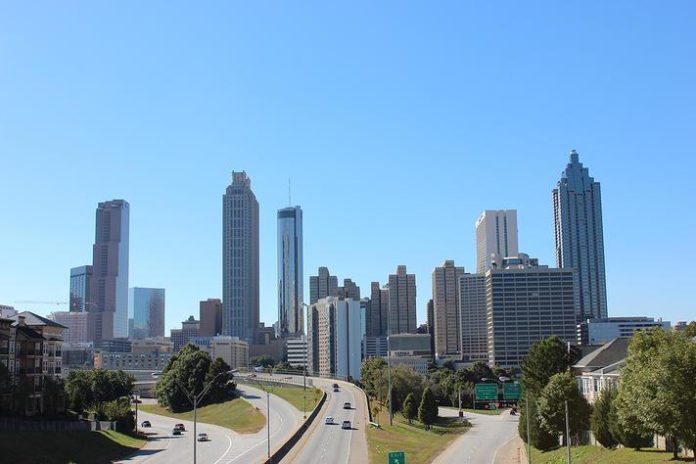By Kate Riney
When I first came to Atlanta, the city was so full of hope and excitement. It seemed like the streets were buzzing like the build-up to a giant choral number in the latest Broadway hit. Any moment a MARTA bus would empty its contents of people onto busy Peachtree Street and a giant flash-mob dance would ensue. A horse-riding DJ would dismount and start remixing “Georgia on my Mind” and “Welcome to Atlanta” (there really is a horse-riding DJ here, he's called the Urban Cowboy). All the merriment would end in a giant parade where hobo and stock exchanger, mom, and teenager would walk down the street hand-in-hand.
I had a dream.
It goes without saying, that when I actually moved downtown to start college, this was not the scene that greeted me. As I walked to class each day, I was bombarded with constant pleas from sincere, albeit slightly smelly, folks living on the streets. They asked for food or change for the bus. On most days, I felt forced to ignore their requests as a young girl trying to protect myself in a “big city.”
I grew up in a pretty quiet and very safe suburb in Georgia. There were a handful of African-Americans and Latinos and two foreign exchange students at my high school, but outside of classes I rarely saw anyone of another ethnicity. Atlanta was only 30 miles from my hometown, but it was a world away. In Atlanta I could see and engage people from Korea, Somalia, Nigeria, Lebanon, Canada, and China all within one community park. I began to understand better the deep-seated race-relation issues still lurking in the background, largely ignored but still very real. I learned that on average, 300 young women under 18 are sexually exploited every month in Georgia and consequently, I started volunteering in an at-risk neighborhood. I learned that most homeless shelters charged a nightly fee for a cot and meal. I learned the ugly side of the city.
But along with the social issues and traffic everyone in Atlanta deals with, I also discovered wonderful nonprofits and ministries doing incredible work to empower the disadvantaged and create united, peaceful communities. There are your standard food banks, soup kitchens, and clothes closets, but there's so much more! There are groups receiving clearance to go into strip clubs to minister to the dancers and bouncers. One nonprofit offers an array of world-class art and technology equipment for community use at a very low member fee. Even a for-profit coffee shop chain, has contributed to social change by setting a model for responsible capitalism and working to give coffee farmers in Rwanda fair wages and conditions.
Its less windy than Chicago, it won't give you altitude sickness like Denver, we get more rest than New York, and there's arguably less sin (at least less gambling) than Las Vegas. Which makes it a pretty great home to the beloved McAfee. No, things in the Peach state capitol aren't “peachy-keen,” but there are good people working hard to make it a better place and we get the opportunity to partner with them to leave a prophetic witness.
We're opening up a new section of Tableaux dedicated to the magnificence and allure of Atlanta. Its going to be a great addition featuring some of the most influential nonprofits, ministries, and organizations impacting the streets of Atlanta. Come here to get a leg up on the current trends in urban mission and learn how to leave your mark on Atlanta!
Kate Riney is a community moblizer for Faith to Action, an initiative of the Better Care Network aimed at guiding churches in using best practices with orphaned and vulnerable children. She is a second-year MDiv student at McAfee in the nonprofit dual-degree track. In her spare time, Kate loves cooking meals for friends, taking in the outdoors and drinking good joe.










